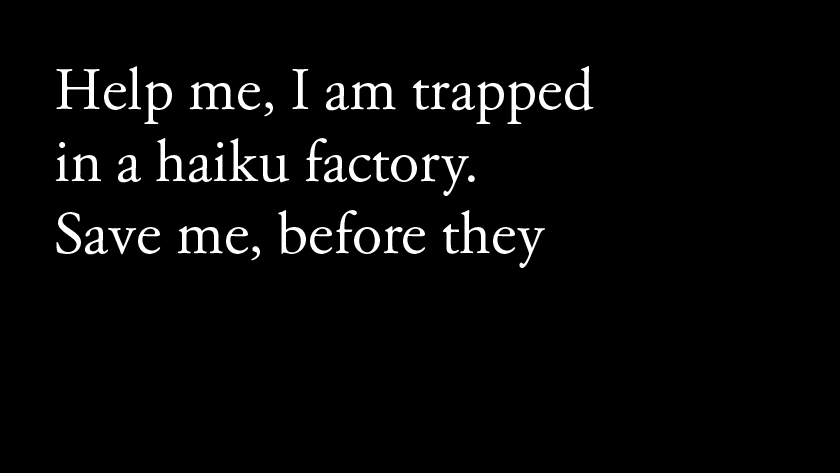If I were Google, would I have entered Red China with the censored version of Google.cn, hiding things from the Chinese people for the sake of money? In February 2006, I blogged about this very issue and concluded, ‘No.’
Obeying the law is one thing. Providing the people with slanted views to prop up governmental propaganda is another.
It seems Google has gained a conscience, to the point where it is talking about shutting its office inside the Middle Kingdom, after lifting the self-imposed censorship it instituted in the mid-2000s when it entered. It also cites various international hacking attempts in an effort to gain the contents of Gmail accounts of people who have been talking about Chinese human rights. These have, the company claims, originated from Red China.
Global Voices Online has a great piece summarizing the reactions inside the People’s Republic, which are supportive of Google and critical of the Politburo.
I’ve always believed that the Chinese people cannot be silenced. Nor are we stupid. With such strong economic growth (albeit with fudged figures) and a natural entrepreneurial spirit, what does Beijing have to be afraid of?
It’s not as though the occidental technocratic experiment has worked particularly well for productivity and personal wealth over the last 30 years, and the Chinese people aren’t going to see western culture in as bright a light as it once had.
The days of walking out of an impoverished Red China on to the streets of the west are long gone, given how quickly the nation has caught up (and in some cases overtaken) the rest of the world. There’s not as huge a gap between the two. Economically, Beijing has nothing to lose face over any more.
The only question left these days is human rights, one which Beijing gets squirmy about.
There is an easy way to fix this: become idealistic, then live it. Red China is big and powerful enough to see this through, and the backbone of deontological, Confucian ideals surely have shown how such a large country can be governed without dissent getting out of hand.
The expense of monitoring and censorship might be better used on raising the more difficult areas of the country out of poverty.
It’s with these principles that a united Chinese Commonwealth might be a reality, one where freedoms are enjoyed by all. But let’s not get ahead of ourselves just yet.
Take even the minutest step toward permitting freedoms, and I guarantee the opposition to Red Chinese trade and diplomatic relations will begin to fall. The fact this blog remains accessible inside the Bamboo Curtain is actually a positive sign: it means that some free thinking is allowed. Deals like Geely–Volvo might well become easier for the west to contemplate, once Beijing looks more like it wishes to be part of the international community.
Such a community is not biased toward the west—and westerners themselves will argue that it is not. China’s influence—and I mean all of China and in countries where the Chinese diaspora is strong—is greater than Beijing will ever acknowledge.
Until that attitude changes, Red Chinese industrial deals won’t have as easy a ride (relatively) as Ratan Tata and his acquisition of Jaguar and Land Rover.






Stunning is all I can say – you and your website (and your business) claim to be a quote) ….”global media and communications company that seeks to provide its clients with elegant, practical and ethical solutions with the strongest awareness of integrity, rights and freedoms…..” but I must say that using an image (my image without permission is both dishonest and frankly theft – So I ask you ONCE nicely REMOVE the above image NOW – It may have been different if permission was asked and or credit was given.
I should have remembered you would have a lot to say about this latest story. But I don’t think it was so much that Google gained a conscience; I would say more so it became painfully obvious that China does NOT have Google’s best interests at heart. Google had an “oh shit!” moment, to put it bluntly.
p.s. Check your Waves… some articles on typeography popped up in my OSNews feed and I’ve sent you both the links there.
Mark, a credit to you was put in to the Alt tag (though I admit a further one in a caption should have been made), and as it was a thumbnail that linked to your image, I took the approach that Google Images and others do: that something that small by way of a link has become acceptable over the last 10 years. (Google Images, for instance, has far larger thumbnails of your work, linked and without Alt tags, and I usually do a quick search to see if the author has permitted his photography to be catalogued there.)
With my own images, which are also copyrighted, I have always accepted the linking of thumbnails, so I take a “do unto others” approach. In my experience, most photographers now take the approach of extending the concept of fair use to thumbnails provided there is some acknowledgement of the source and a link back. (If I was really dishonest and stealing, I would never have credited you or given you a link, and I suspect that’s how you found me.)
From a strict legal point of view you have every right to complain and I offer you my apology. You also have the right to complain based on a moral right in terms of where your photo wound up.
It puts up an interesting argument over what has become fair use, which could be a good post in future, but I won’t debate that now. The main thing is your image has been removed.
However, if you feel this strongly, I recommend you make the same complaint to Google Images et al or arrange to have your photography unlinked, too. I’m fairly certain they never asked for your permission, either.
Jak: the sad thing is I could have told Google that in 2006! Will head into Google Wave now and have a gander.
There’s a great article over at Ars Technica that just came to my attention: http://arstechnica.com/tech-policy/news/2010/01/google-v-china-the-chinese-government-reacts.ars
汉奸, que savez vous des droit de l’homme?
Leur application, lors des 40 dernières années, n’a apporté que des choses négatives aux pays occidentaux.
And the story just keeps twisting and turning. There’s talk now that the cyberattack might not have originated from China at all:
http://www.theregister.co.uk/2010/01/26/aurora_attack_origins/
And here’s Bill Gates take on it:
http://www.osnews.com/story/22797/Gates_Weighs_in_on_Google_China_Issue
sorry, this link is a bit more direct for Gates’ perspective:
http://www.google.com/hostednews/afp/article/ALeqM5h6xLzW9vQePrrOxo-PUHkl3EPLBQ